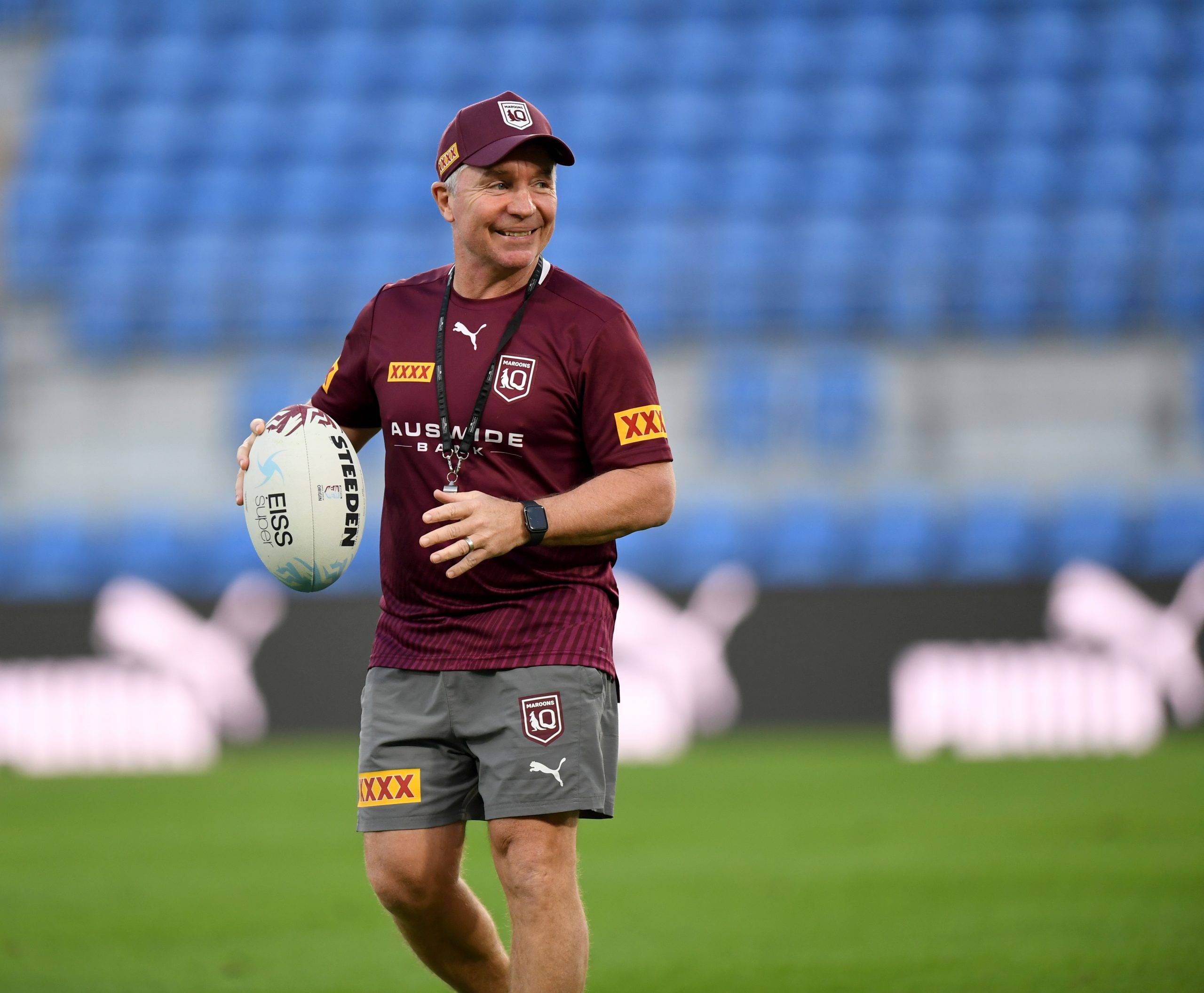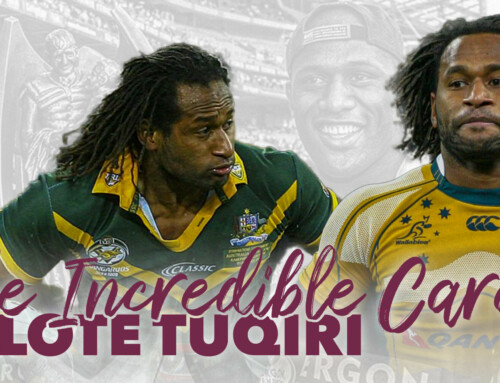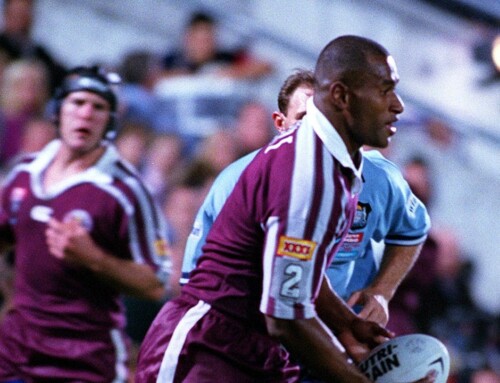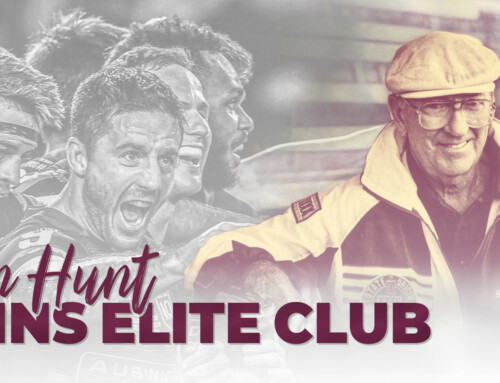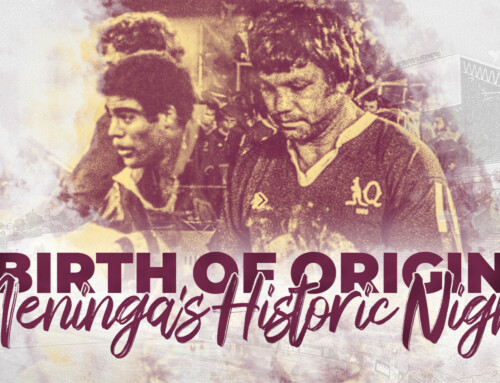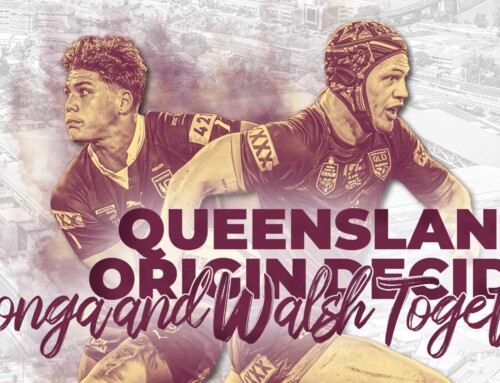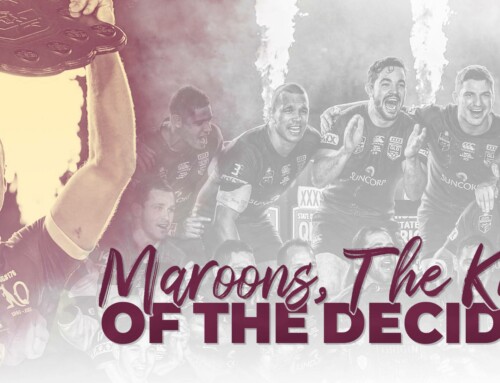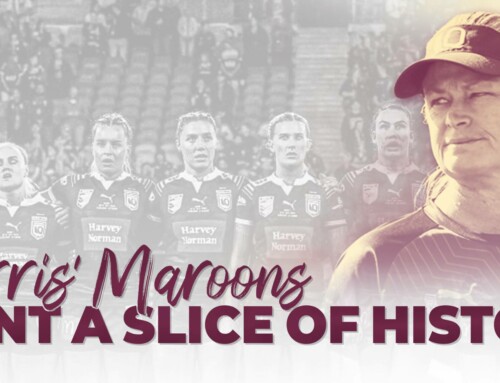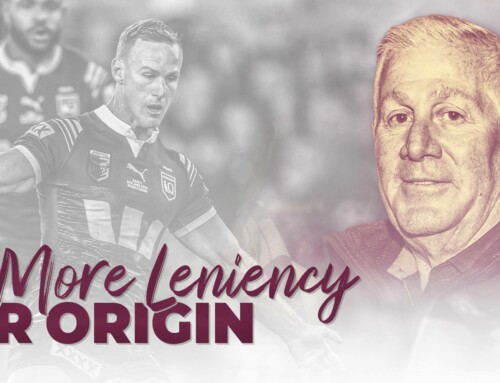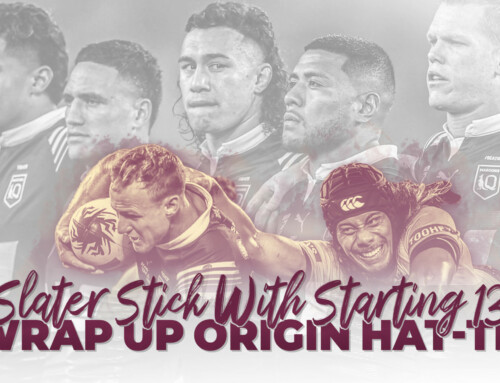When Wayne Bennett brought Allan Langer back from England for his Origin fairytale in 2001, one of the first people the super coach thought about was Paul Green.
Green was Queensland’s incumbent halfback. He had steered a youthful Maroons side with a raft of debutants to a magical 34-16 thumping of the Blues in the series opener.
But when Queensland lost 26-8 to NSW in Sydney, Bennett engineered his ‘Alfie’ masterplan for the Origin decider.
Bennett knew Langer’s secret flight home would have major ramifications for Green.
The pint-sized halfback would have to be the man to make way for Langer in the No.7 jumper.
But true to Green’s team-first mentality, he embraced the idea and was slotted into hooker for the Game 3 decider.
With Langer and Green pulling the strings as key members of Queensland’s spine, the Maroons celebrated one of the greatest series wins with a 40-14 thumping of the Blues.
It was to be the last of Green’s seven matches in a Queensland jumper.
Of his only two wins for Queensland from 1999-2001, both were in that famous ‘Bennett’s Babes’ series.
Two decades on, as the rugby league world mourns the shock passing of Green, aged 49, Bennett says that 2001 series will always be a treasured memory.
“What we achieved in 2001 is right up there with the greatest moments I’ve experienced in rugby league,” Bennett said.
“Paul played a huge role in that series.
“He was our halfback for the first two games and when we decided to bring Alfie back, it was going to affect Paul more than anyone.
“It meant moving him to hooker, but Paul took on the challenge and got the job done for Queensland.
“That summed up Paul. He was always a team player, and the boys enjoyed his company.
“But above all, he was a bloody good football player with a very intelligent mind.”
That selflessness and intelligence will create an ongoing legacy for Green, with his family announcing through the Australian Sport Brain Bank that they are donating his brain to science, with the goal of raising $150,000 for research.
Green’s wife Amanda, and children Emerson and Jed posted this message on the Sports Brain Bank Website:
“In memory of our beloved Paul, we ask that you support the pioneering work of the Australian Sports Brain Bank.
“Paul was known for always looking out for others. We are proud that part of his legacy will be looking out for the brain health of all others involved in the game that he loved.
“Amanda, Emerson and Jed.”
Clinical Associate Professor and Director of the ASBB, Michael Buckland, lauded the Green family for thinking of others while trying to navigate their way through their immense heartbreak.
“This is an incredibly generous donation and will be an invaluable part of our research into the long-term effects of repetitive head impacts in sport and elsewhere,” Buckland said.
“We at the Australian Sports Brain Bank are blown away by the fact that in their time of grief, Amanda and the rest of the family thought of how they could help others.”
The rugby league community will now get ready to say a final farewell to Green, with his funeral service and memorial to be held on Tuesday, August 30 at Wynnum Manly Leagues club at Kougari Oval from 11am.
The service will be hosted by Iona College Rector Fr Michael Twigg, and media personalities Pat Welsh and Jess Yates.
People wanting to attend to pay their respects can reserve a seat in the grandstand by clicking through the Eventbrite registration platform here.
Those closest to Paul will also be invited to a private component of the day, with invitations issued separately in the coming days.
Kougari Oval was where Green made the transition from star player to champion coach.
After a successful top-grade career including 162 games spanning 10 years at Cronulla, the Cowboys, the Roosters, Parramatta and the Broncos, Green steered his beloved Wynnum Manly to back-to-back titles in 2011-12.
He then went on to win a premiership as assistant coach at the Roosters in 2013, gave the Cowboys their first trophy by winning the Auckland Nines in 2014.
In 2015, he smashed North Queensland’s 20-year premiership hoodoo with a pulsating extra-time grand final defeat of the Broncos.
Ironically, Bennett was Green’s coaching rival in the 2015 NRL decider.
A decade earlier, Green was cutting his teeth as a development coach at the Broncos and Bennett vividly remembers Green being the brains behind a tactic that is used today by every NRL coach.
Ever and always, Green was a thinker. Pushing the limits. Ahead of the game. A pioneer.
“I only spoke to Greeny last week and I said to him: ‘The kicks that go up to the wingers now in the NRL – that was your idea Paul’,” Bennett said.
“He was the instigator of it. He worked out the benefits of putting the ball in the air which gave the attackers time to contest for the ball.
“Everyone in the NRL does it today, but Paul was the architect of that.
“He was a smart bloke. He had a pilot’s licence. He had an interest in a lot of other things in life outside of rugby league.
“I remember when Paul was at the Broncos in his final years as a player. I told him if he wanted to coach, he needed to go away and run his own team.
“I knew he wanted to be a head coach, and he did a wonderful job at Wynnum winning two premierships in a row.
“What can never be taken away is Paul bringing a premiership to the Cowboys, their first one.”
Bennett spoke to Green last week because he had another plan in mind.
The 72-year-old wanted Green to join his assistant staff for the Dolphins’ debut season in the NRL next year and the former Cowboys mentor was on the verge of accepting the role.
It was to be Green’s pathway back to the big time after a year out of coaching following his exit as Queensland Origin coach in 2021.
“I had spoken to Paul about coming to the Dolphins,” Bennett said.
“I wasn’t sure if he was coming, but we were in negotiations with him, and I was pretty confident of Paul taking the job.
“We got to the point of discussing salary, so we were in the final stages and Greeny was seriously considering taking the job.
“My plan was for him to be on board next year.
“I worked with Paul as far back as 2000 at the Broncos, so I knew what he brought and I knew what type of bloke he was.
“He ticked all the boxes for me.”


